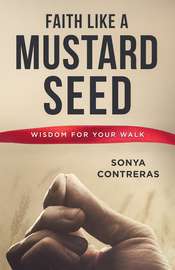- Home
- Index
-
My Books
- Book List
- Writing/Reading Articles Listing
-
My Short Stories
- What God Lost
- What God Lost — Part 2
- When Hope Was Lost
- A Battle in the Heavens
- To Live Forever
- Finding Peace
- Empty Hands
- From Fire and Thunder to Love and Submission
- The Coming One
- Forgiveness Made Possible
- The Innkeeper's Wife
- Do You Have The Right Words?
- The Lamb of God As Told by a Scribe
- What Love Is This?
- When Heaven Came Down
- Family
- Faith
I'm laughing over your last line, for my naps definitely were for the children's sake. Of course I didn't often nap when they were growing up, but sometimes they'd come to me and INSIST very strongly that I needed a nap! When that happened I knew I must really need one before I did or said something I shouldn't, so I'd take a nap.
This is a great article on sleep, I'm going to share it on Facebook and send it by email to my daughter-in-law, who doesn't have time for Facebook! Thanks for all the effort you put into these articles, don't know how you find time. Is it at midnight?

 Do your children come to you at bedtime with all their aches and pains? My standard answer is, “Sleep makes everything better. If it still hurts in the morning, tell me.” My answer is not based on scientific studies, but my experience as a mom tells me, the hurt won’t be there in the morning and sleep (the child’s and mine) sure makes everything better. But now, I have found studies that may support my answer.
Do your children come to you at bedtime with all their aches and pains? My standard answer is, “Sleep makes everything better. If it still hurts in the morning, tell me.” My answer is not based on scientific studies, but my experience as a mom tells me, the hurt won’t be there in the morning and sleep (the child’s and mine) sure makes everything better. But now, I have found studies that may support my answer.








Thanks for sharing. Hope it helps all mothers with little ones.
Time? ...By 8:30 PM most nights, I'm in bed. It's the 2-3 AM that you'll find my light on.